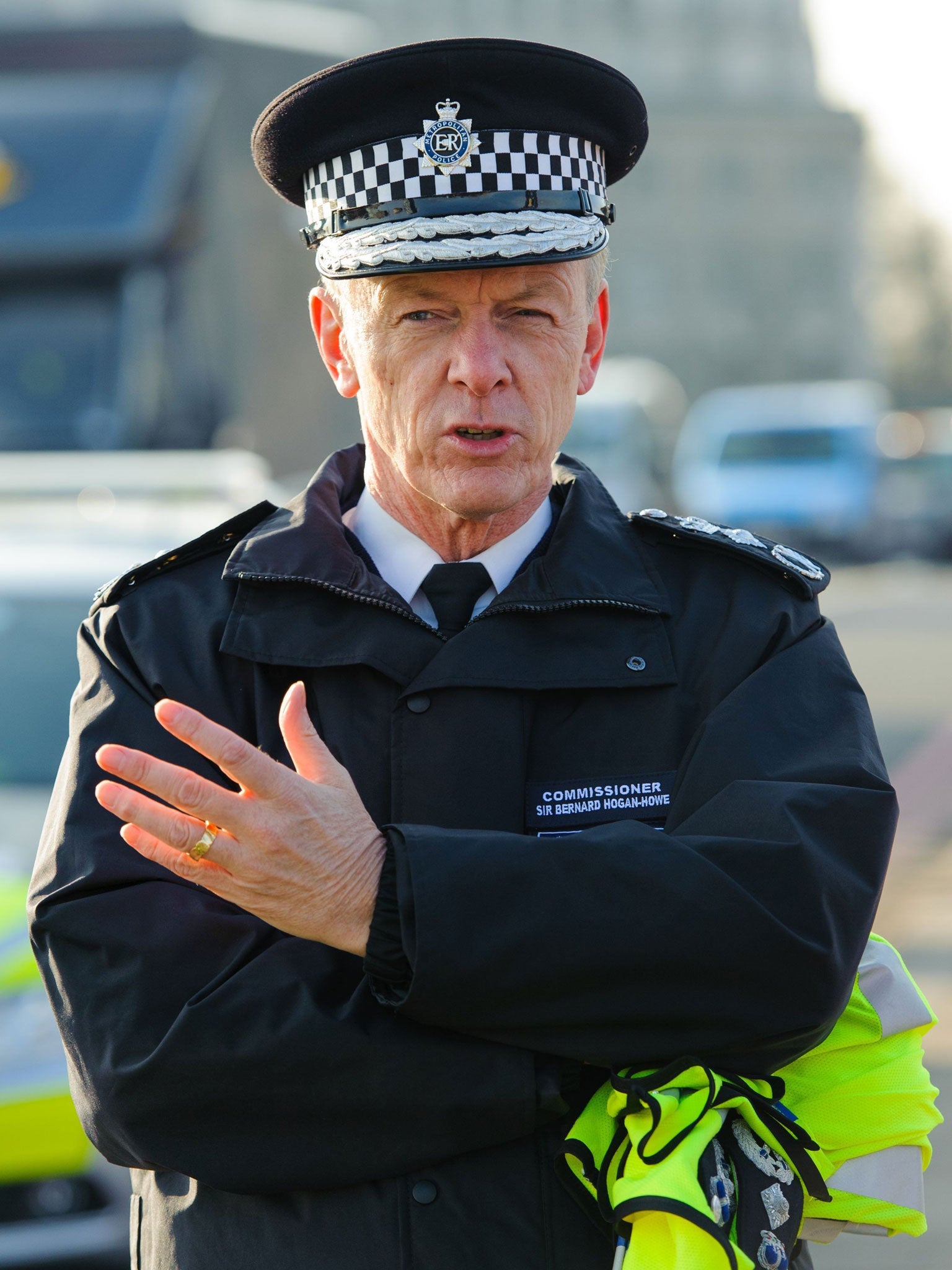Will Britain's most senior police officer, Sir Bernard Hogan-Howe, face Hillsborough quiz?
IPCC considering whether he should face investigation for events at Boys' Club where relatives of those killed were told who had died

Britain's most senior police officer could be investigated for his role in the aftermath of the Hillsborough football disaster, it was announced today.
The police watchdog said it was considering whether Sir Bernard Hogan-Howe, the Commissioner of the Metropolitan Police, should face an investigation for the events at the Sheffield Boys' Club where relatives of those killed in the 1989 stadium tragedy were told who had died.
Sir Bernard, who was at the time an inspector with the South Yorkshire force, was not on duty during the disaster but answered a call for officers to join the operation as the enormity of incident became apparent in the following hours. He took charge of the police team at the Boys' Club.
The Independent Police Complaints Commission (IPCC), which is examining the treatment of relatives during and after the deaths of the 96 fans, said it was looking at how officers managed the task of informing families.
In a statement, the IPCC said: "The Boys' Club was part of that process and Sir Bernard was on duty there. At this stage we are investigating the processes and if, through that work, we identify individuals whose actions should be formally investigated then we will pursue that."
Among the incidents being looked at is the reading out of a list of people believed to be alive by an unidentified police officer at the Boys' Club on the night of the tragedy. It included the name of 14-year-old Adam Spearritt, who had actually died in the disaster.
The IPCC said it had contacted the teenager's family and asked if they wanted the matter to be specifically investigated.
Scotland Yard said Sir Bernard would "co-operate fully with any inquiries from the IPCC".
The IPCC said it had also written to Sir John Major, who last month apologised to the Hillsborough families for failing to order a public inquiry while he was prime minister. Sir John said the decision had been taken on the basis of "pretty strong police views".
The watchdog said it had asked Sir John for further detail to determine whether it should be part of its investigation.
The IPCC later said it had received a formal complaint concerning Sir Bernard and his role in Hillsborough which would be added to its investigations.
